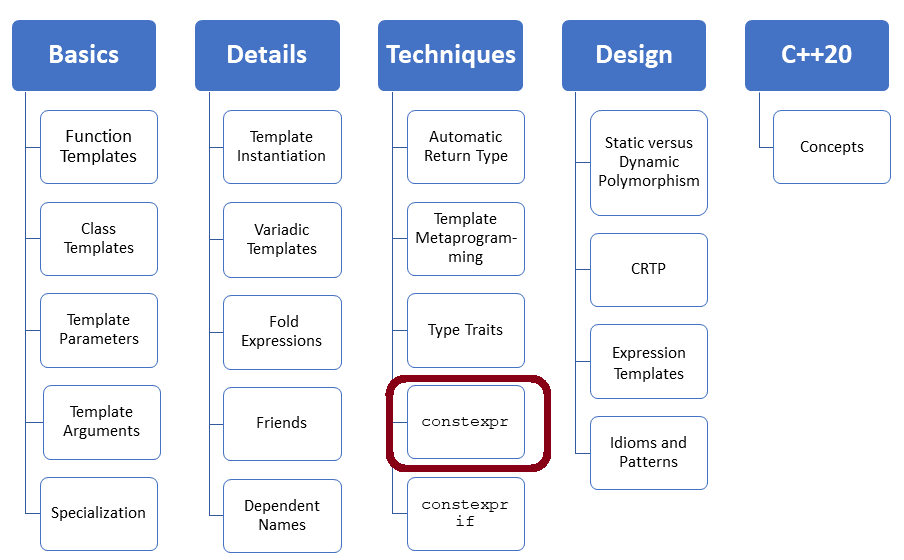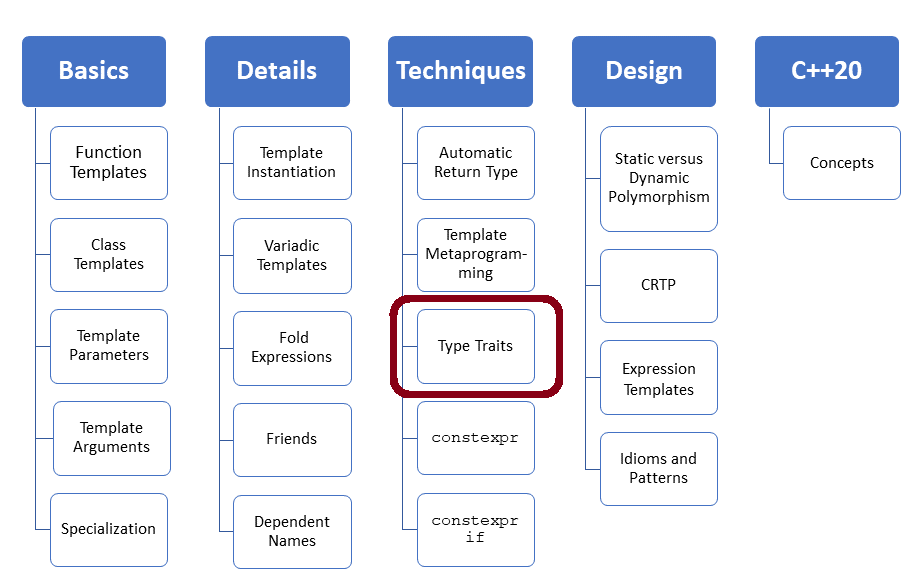
constexpr Functions
/
0 Comments
Today, I continue my story about programming at compile time. After template metaprogramming, the type-traits…

An Update of my Book “Concurrency with Modern C++”
I am happy to announce. I updated my "Concurrency with Modern C++". This update includes a rework…

The New pdf Bundle is Ready: C++20 Concurreny – The Hidden Pearls
I have prepared the pdf bundle. To get it is quite simple.
If you subscribe to the newsletter,…

Dining Philosophers Problem III
This post ends the mini-series about the dining philosophers problem by Andre Adrian. Today, he applies…

Dining Philosophers Problem II
In the last post "Dining Philosophers Problem I", Andre Adrian started his analysis of the classical…

Dining Philosophers Problem I
At Christmas time, I had a few nice discussions with Andre Adrian. He solved the classical dining philosopher's…

My Mentoring Program “Fundamentals for C++ Professionals”
I'm happy to provide you with more details about my mentoring program, "Fundamentals for C++ Professionals".
My…

Which pdf bundle do you want? Make your choice!
Now, it's time to choose the next pdf bundle? Get all the material to your chosen topic.
I…

The Type-Traits Library: Optimization
The type-traits library has two main goals: correctness and optimization. Today, I write about optimization.
This…

The Type-Traits Library: Correctness
The two main goals of the type-traits library are compelling: correctness and optimization. Today, I…

The Type-Traits Library: std::is_base_of
I finished the last article on the Type-Traits library with the challenge of explaining the std::is_base_of…

The Type-Traits Library: Type Comparisons
In my last post, "The Type-Traits Library: Type Checks" I introduced type checks at compile time with…
